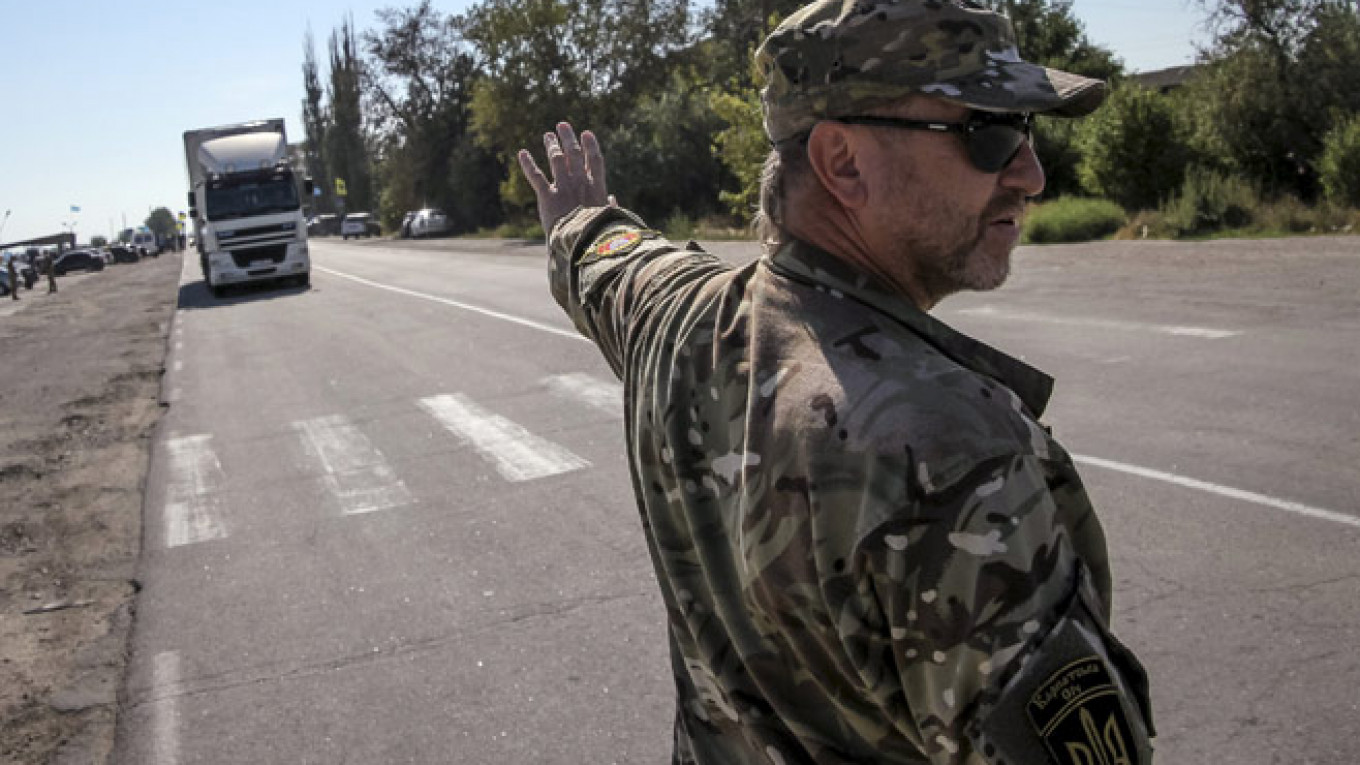KIEV — Tatar activists set up roadblocks on the two main roads leading from the Ukrainian mainland into Russia-annexed Crimea on Sunday at the start of what they said was an economic blockade aimed at dramatizing the plight of Tatars living on the peninsula.
The majority of the Crimean Tatars, a Muslim people who are indigenous to the Black Sea territory and number about 300,000 in the peninsula's population of two million, opposed the Russian annexation in March 2014, which followed the overthrow of a Moscow-backed president in Kiev.
Tatar solidarity groups on the Ukrainian mainland say many of their kin in Crimea face discrimination and hardship as they come under pressure to align themselves with the Russia-backed authorities.
On Sunday, Ukrainian interior ministry officials and media on the spot said that Tatar activists, backed in some cases by pro-Ukrainian militia groups, set up roadblocks to stop goods traffic moving onto the peninsula from the two main highways from the northwest and northeast.
"At Chongar, Chaplinka and Kalanchak a blockade has started of trucks leading onto the peninsula," said interior ministry adviser Zoryan Shkiryak, naming towns on the two highways.
Media at the scene on both roads said activists were blocking the way to trucks, with concrete blocks in some cases. A tailback of traffic was forming.
A few hundred people had turned out in response to social media appeals for support and some activists were clearly preparing for a long stay, pitching tents, setting up makeshift kitchens and installing temporary toilet facilities.
They were backed in some places by activists from the far-right nationalist group Right Sector and from pro-Ukraine militia battalions, media said.
"Some lively discussion are taking place with drivers. But not a single wagon is going to get by. Some drivers are waiting wondering what to do. Some are already turning back," said Crimean Tatar leader Refat Chubarov, quoted by the Interfax news agency.
A Message from The Moscow Times:
Dear readers,
We are facing unprecedented challenges. Russia's Prosecutor General's Office has designated The Moscow Times as an "undesirable" organization, criminalizing our work and putting our staff at risk of prosecution. This follows our earlier unjust labeling as a "foreign agent."
These actions are direct attempts to silence independent journalism in Russia. The authorities claim our work "discredits the decisions of the Russian leadership." We see things differently: we strive to provide accurate, unbiased reporting on Russia.
We, the journalists of The Moscow Times, refuse to be silenced. But to continue our work, we need your help.
Your support, no matter how small, makes a world of difference. If you can, please support us monthly starting from just $2. It's quick to set up, and every contribution makes a significant impact.
By supporting The Moscow Times, you're defending open, independent journalism in the face of repression. Thank you for standing with us.
Remind me later.






